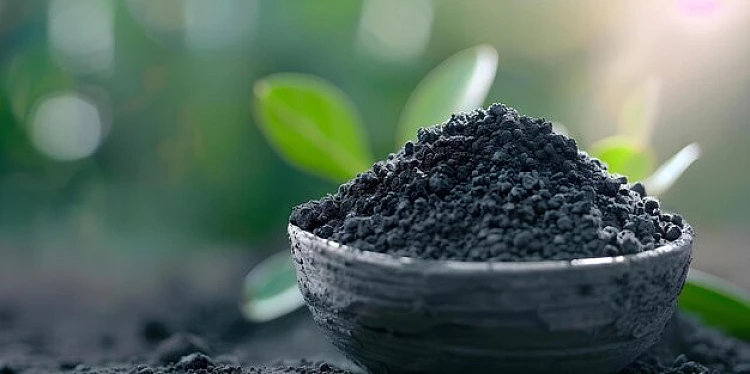As organic farming continues to gain traction worldwide, farmers are increasingly turning to natural and sustainable solutions for soil enhancement and crop growth. One such revolutionary product is seaweed fertilizer. Extracted from marine algae, seaweed fertilizer is a powerhouse of nutrients, offering multiple benefits for plant health, soil structure, and overall crop yield. Unlike chemical fertilizers, which may degrade soil quality over time, seaweed fertilizer nurtures the soil naturally, making it a game-changer for organic farming. In this article, we will explore the numerous benefits of seaweed fertilizer, its impact on organic farming, and why it is becoming the preferred choice for sustainable agriculture. Seaweed fertilizer is an organic fertilizer derived from various types of marine algae, including brown, red, and green seaweed. It is rich in essential nutrients like nitrogen, phosphorus, potassium, and trace elements such as magnesium, zinc, and iron. Additionally, it contains natural plant growth hormones like auxins, gibberellins, and cytokinins, which help in stimulating plant growth and improving resistance to environmental stress. Available in liquid, powder, or granular form, seaweed fertilizer is easy to apply and quickly absorbed by plants, making it an efficient alternative to synthetic fertilizers. One of the primary advantages of seaweed fertilizer is its ability to improve soil structure and microbial activity. It enhances soil aeration, moisture retention, and nutrient absorption, making the soil more fertile for plant growth. Encourages beneficial microbial activity Improves soil texture and water retention Reduces soil erosion and compaction Seaweed fertilizer is rich in natural plant growth hormones, which stimulate root development and enhance nutrient uptake. This leads to stronger plants, healthier foliage, and improved crop yield. Accelerates germination and root establishment Increases fruit and flower production Enhances overall crop resilience Plants treated with seaweed fertilizer develop stronger resistance to pests, diseases, and environmental stress. The bioactive compounds in seaweed help in fortifying plant cell walls, reducing the risk of fungal infections and pest attacks. Reduces susceptibility to common plant diseases Increases resistance to drought and extreme temperatures Acts as a natural deterrent for pests Unlike chemical fertilizers, which can cause soil degradation and water pollution, seaweed fertilizer is 100% organic and environmentally friendly. It minimizes the ecological footprint of farming and supports sustainable agriculture. Biodegradable and non-toxic Reduces reliance on synthetic fertilizers Helps maintain biodiversity in farming ecosystems Organic produce grown with seaweed fertilizer is known for its superior taste, color, and nutritional value. The rich composition of seaweed enhances the mineral content of crops, making them more nutritious and marketable. Enriches crops with essential minerals Improves flavor and texture Increases shelf life of harvested produce Applying seaweed fertilizer as a foliar spray ensures quick absorption of nutrients through plant leaves. This method is particularly effective for boosting plant immunity and enhancing flowering. Mix the recommended dosage with water Spray directly on plant leaves in the morning or late afternoon Repeat every 2-3 weeks for optimal results For improved root development and soil enrichment, seaweed fertilizer can be applied directly to the soil. This method enhances microbial activity and increases nutrient availability. Dilute the fertilizer in water as per instructions Pour around the base of plants or use drip irrigation Apply every 15-20 days for best results Soaking seeds in a seaweed fertilizer solution before planting can significantly improve germination rates and seedling vigor. Prepare a diluted solution Soak seeds for 12-24 hours before sowing Observe faster and healthier seedling emergence
From the table above, it is evident that seaweed fertilizer offers long-term advantages over chemical fertilizers, making it the better choice for organic farming. With increasing awareness about sustainable agriculture, farmers are shifting towards organic alternatives like seaweed fertilizer. Its ability to improve soil fertility, enhance crop resilience, and boost yields without harming the environment makes it a preferred choice for modern farming. Cost-effective and easy to use Suitable for all types of crops Supports eco-friendly farming practices Enhances organic certification compliance Farmers who have adopted seaweed fertilizer report higher yields, improved soil structure, and better-quality produce, proving its effectiveness in sustainable agriculture. As global agricultural trends shift towards organic and sustainable farming, seaweed fertilizer will play a crucial role in ensuring food security while maintaining environmental balance. Governments and agricultural bodies are promoting its use to reduce dependency on chemical fertilizers and encourage organic farming practices. With ongoing research and innovation, seaweed fertilizer formulations are becoming more efficient, making them accessible to farmers worldwide. The future of organic farming looks promising with the widespread adoption of this natural and sustainable solution. The benefits of seaweed fertilizer in organic farming are undeniable. From enriching soil health to improving plant growth and ensuring sustainable agriculture, it is a game-changer for modern farmers. Unlike chemical fertilizers, which pose risks to both human health and the environment, seaweed fertilizer offers a natural, eco-friendly alternative that enhances productivity while preserving soil fertility. At Humic Factory, we are committed to providing high-quality organic solutions like seaweed fertilizerIntroduction
What is Seaweed Fertilizer?
Benefits of Seaweed Fertilizer for Organic Farming
1. Enhances Soil Health
2. Boosts Plant Growth and Yield
3. Strengthens Plant Immunity
4. Promotes Sustainable Farming Practices
5. Improves Crop Quality and Nutrient Content
How to Use Seaweed Fertilizer in Organic Farming
1. Foliar Spray
2. Soil Drenching
3. Seed Treatment
Comparing Seaweed Fertilizer with Chemical Fertilizers
Why Farmers Are Choosing Seaweed Fertilizer
Key Reasons for Its Popularity:
Future of Organic Farming with Seaweed Fertilizer
Conclusion


Submit your contact number to receive exclusive updates
Something went Wrong Please try again!!!
Bulk Purchase
Get Bulk Discount
Get Discount Code now
फोन नंबर सबमिट करे और ऑफर पाए
We believe farming is hard. This is our attempt to support farmers. Submit your contact details to receive a discount and other offers from Humic Factory.

Recommended Products
COPYRIGHT © 2024. All Rights Reserved By Humic Factory


